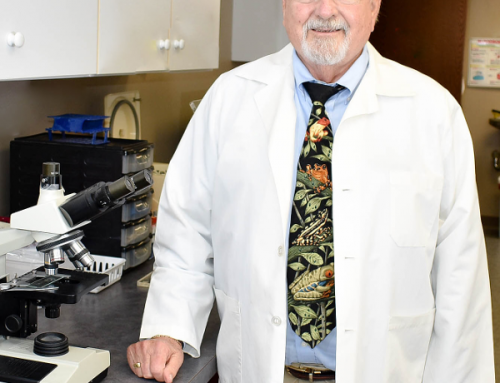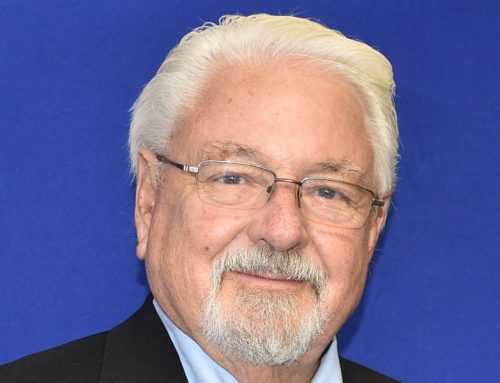Post-viral fatigue syndrome includes the debilitating effects of long COVID, chronic fatigue syndrome/myalgic encephalomyelitis, and fibromyalgia.

Long COVID or Post COVID conditions are characterized by the same sort of persistent severe fatigue that is seen in chronic fatigue syndrome and fibromyalgia patients. The underlying cause may be mitochondrial dysfunction, oxidative stress, and chronic inflammation. Coenzyme Q10 supplementation may address these issues.
Post-viral fatigue syndrome is characterized by persistent severe fatigue. The fatigue is often accompanied by muscle pain, impaired concentration and impaired memory, mood changes, and depression. Common for all of these disorders is the lack of effective treatment. There is a need to find new therapeutic strategies [Mantle et al 2023].
The search for new therapies has now come around to a focus on the role of mitochondrial dysfunction. The thinking is that there is a link between the persistent fatigue and the crucial role of the mitochondria in cellular energy metabolism. Thus, mitochondrial dysfunction may be the underlying cause of impaired ATP energy generation, cellular oxidative damage, and low-grade systemic inflammation in these disorders [Mantle et al 2023].
Coenzyme Q10 and Post-Viral Fatigue Syndrome
In a 2023 paper, Mantle et al summarize the clinical studies that suggest a role for Coenzyme Q10 as an adjunctive therapy in post-viral fatigue syndrome. In all of the summarized studies, the form of Coenzyme Q10 used in the supplementation has been the ubiquinone form. Based on the evidence in a 2023 review, the pharmacologists Fladerer and Grollitsch concluded that supplementation with the ubiquinone form of Coenzyme Q10 has the following heart health benefits:
- reduced cardiovascular death in patients with heart failure
- required lower concentrations for a beneficial effect
- showed positive long-term effects reducing cardiovascular mortality
The protection that Coenzyme Q10 as a monotherapy and as a combination therapy together with selenium may be of particular importance in preventing the development of heart problems following COVID-19 infection [Mantle et al 2023]. In this context, the results of the Q-Symbio Study (improved symptoms and survival) and the KiSel-10 Study (reduced cardiovascular mortality) are noteworthy [Mortensen et al 2014; Alehagen et al 2013].
CoQ10 therapy in chronic fatigue syndrome
In a 2021 randomized controlled trial, Castro-Marrero et al administered 200 mg CoQ10 and 20 mg NADH or placebo to 207 ME/CFS patients daily for three months. Then, they observed a significant improvement in fatigue perception, health related quality of life, and sleep patterns.
In a 2022 open label study, Castro-Marrero et al supplemented 27 chronic fatigue syndrome patients with 400 mg CoQ10 and 200 mcg of selenium daily for 8 weeks. Here too, they observed a significant improvement in overall fatigue severity and global quality of life compared to baseline.
CoQ10 therapy in fibromyalgia
In the case of fibromyalgia, Coenzyme Q10, alone or together with other micronutrients, has been effective in clinical studies for the symptomatic relief. Fibromyalgia patients have depleted CoQ10 levels in tissues (typically 40-50% of normal). Typically, they have increased levels of mitochondrial dysfunction, oxidative stress, and chronic inflammation [Mantle et al 2023].
In a 2013 randomized controlled trial, Cordero et al observed that the supplementation of 20 fibromyalgia patients with 300 mg/day Coenzyme Q10 for 40 days significantly reduced chronic fatigue and pain, improved ATP energy generation, and reduced oxidative stress and inflammation.
In the same study, Alcocer-Gomez et al noted that psychopathological symptoms (including anxiety/depression) significantly improved. The researchers linked the improvement to the effect of supplemental CoQ10 in reducing oxidative stress and inflammation and to increased levels of serotonin [Alcocer-Gomez et al 2014, 2017].
Moreover, Cordero et al reported significantly improved headache symptoms and significantly improved oxidative stress levels associated with the CoQ10 supplementation at 300 mg/day for 3 months [Cordero et al 2012].
In a 2017 open-label cross-over study of 22 female patients diagnosed with fibromyalgia, Di Pierro et al reported that supplementation with 2 times 200 mg/day Coenzyme Q10 for six months was associated with significant reductions of chronic fatigue and pain.
In a 2019 clinical study, Sawaddiruk et al observed that 300 mg/day supplementary Coenzyme Q10 further reduced chronic pain in fibromyalgia patients treated with pregabalin. In the randomized controlled trial, the researchers treated the fibromyalgia patients either with pregabalin plus CoQ10 or pregabalin plus placebo for six weeks. After a two week wash-out period, patients in the pregabalin plus CoQ10 group were switched to pregabalin plus placebo, and vice-versa, for a further six weeks.
The researchers noted that the pregabalin alone reduced pain and anxiety/depression but had no effect on mitochondrial function and inflammation. The treatment with pregabalin plus CoQ10, however, significantly reduced pain and anxiety/depression and significantly reduced biomarkers of mitochondrial dysfunction, oxidative stress, and inflammation.
In a 2002 open uncontrolled study of 23 fibromyalgia patients, Lister reported that daily supplementation with 200 mg CoQ10 and 200 mg Ginkgo biloba for 84 days significantly improved the patients’ health-related quality of life.
In a 2020 randomized controlled trial conducted with 21 female fibromyalgia patients supplemented with 150 mg/day Coenzyme Q10 together with vitamin D, alpha-lipoic acid, magnesium, tryptophan, vitamin B2, and niacin for three months, Schweiger er al reported a significant reduction in pain.
CoQ10 therapy in long COVID
In a 2021 paper, Israel et al reported on case studies showing that Coenzyme Q10 is associated with significantly reduced odds for COVID-19 hospitalization.
In a 2023 prospective observational study, Barletta et al compared 116 patients with chronic COVID-19 who were supplemented with 200 mg CoQ10 and 200 mg alpha-lipoic acid daily for two months with 58 COVID-19 patients who received no such treatment. The combined CoQ10 and alpha-lipoic treatment reduced the severity of fatigue compared to the control.
In a 2023 randomized controlled trial enrolling 121 patients with post-COVID condition, Hansen et al reported no significant benefit on long COVID symptoms of daily supplementation with 500 mg CoQ10 for six weeks reported no significant benefit on chronic COVID-19 symptoms. However, it should be noted that over half the participants in this trial overweight or obese. It should be worth repeating the trial for a longer period than six weeks and in patients with normal weight or low weight.
Quality and Bioavailability of the CoQ10 Supplement
Mantle et al point out that the success or lack of success in clinical trials depends to a considerable extent on the quality and bioavailability of the CoQ10 supplement. In a 2020 overview article, Mantle & Dybring address the question of how the formulation of the CoQ10 supplement affects absorption and bioavailability and, ultimately, clinical efficacy [Mantle & Dybring 2020].
It is important to choose a CoQ10 supplement with scientifically documented absorption and bioavailability [Lopez-Lluch 2019].
Sources
Alcocer-Gomez E, Sanchez-Alcazar JA, Cordero MD. Coenzyme Q10 regulates serotonin levels and depressive symptoms in fibromyalgia patients: results of a small clinical trial. J Clin Psychopharmacol 2014, 34 (2), 277-8.
Alcocer-Gomez E, Culic O, Navarro-Pando JM, Sanchez-Alcazar JA, Bullon P. Effect of Coenzyme Q10 on psycho-pathological symptoms in fibromyalgia patients. CNS Neurosci Ther 2017, 23 (2), 188-189.
Alehagen U, Johansson P, Björnstedt M, Rosén A, Dahlström U. Cardiovascular mortality and N-terminal-proBNP reduced after combined selenium and coenzyme Q10 supplementation: a 5-year prospective randomized double-blind placebo-controlled trial among elderly Swedish citizens. Int J Cardiol. 2013 Sep 1;167(5):1860-6.
Barletta MA, Marino G, Spagnolo B, Bianchi FP, Falappone PCF, Spagnolo L, Gatti P. Coenzyme Q10 + alpha lipoic acid for chronic COVID syndrome. Clin Exp Med. 2023 Jul;23(3):667-678.
Cordero MD, Alcocer-Gomez E, de Miguel M, Culic O, Carrion AM, Alvarez-Suarez JM, Bullon P, Battino M, Fernandez-Rodriguez A, Sanchez-Alcazar JA. Can coenzyme Q10 improve clinical and molecular parameters in fibromyalgia? Antioxid Redox Signal 2013, 19 (12), 1356-61.
Cordero MD, Cano-Garcia FJ, Alcocer-Gomez E, De Miguel M, Sanchez-Alcazar JA. Oxidative stress correlates with headache symptoms in fibromyalgia: coenzyme Q10 effect on clinical improvement. PLoS One 2012, 7 (4), e35677.
Di Pierro F, Rossi A, Consensi A, Giacomelli C, Bazzichi L. Role for a water-soluble form of CoQ10 in female subjects affected by fibromyalgia. A preliminary study. Clin Exp Rheumatol. 2017 May-Jun;35 Suppl 105(3):20-27.
Fladerer JP, Grollitsch S. Comparison of Coenzyme Q10 (Ubiquinone) and Reduced Coenzyme Q10 (Ubiquinol) as Supplement to Prevent Cardiovascular Disease and Reduce Cardiovascular Mortality. Curr Cardiol Rep. 2023 Nov 16. doi: 10.1007/s11886-023-01992-6. Epub ahead of print.
Israel A, Schäffer AA, Cicurel A, Cheng K, Sinha S, Schiff E, Feldhamer I, Tal A, Lavie G, Ruppin E. Identification of drugs associated with reduced severity of COVID-19 – a case-control study in a large population. Elife. 2021 Jul 27;10:e68165.
Lister RE. An open, pilot study to evaluate the potential benefits of coenzyme Q10 combined with Ginkgo biloba extract in fibromyalgia syndrome. J Int Med Res. 2002 Mar-Apr;30(2):195-9.
López-Lluch G, Del Pozo-Cruz J, Sánchez-Cuesta A, Cortés-Rodríguez AB, Navas P. Bioavailability of coenzyme Q10 supplements depends on carrier lipids and solubilization. Nutrition. 2019 Jan;57:133-140.
https://pubmed.ncbi.nlm.nih.gov/30153575/
Mantle D, Hargreaves IP, Domingo JC, Castro-Marrero J. Mitochondrial dysfunction and Coenzyme Q10 supplementation in post-viral fatigue syndrome: an overview. Int. J. Mol. Sci. 2024, 25, 574.
Mantle D, Dybring A. Bioavailability of Coenzyme Q10: An Overview of the Absorption Process and Subsequent Metabolism. Antioxidants (Basel). 2020 May 5;9(5):386.
Mortensen SA, Rosenfeldt F, Kumar A, Dolliner P, Filipiak KJ, Pella D, Alehagen U, Steurer G, Littarru GP; Q-SYMBIO Study Investigators. The effect of coenzyme Q10 on morbidity and mortality in chronic heart failure: results from Q-SYMBIO: a randomized double-blind trial. JACC Heart Fail. 2014 Dec;2(6):641-9.
https://pubmed.ncbi.nlm.nih.gov/25282031/
Sawaddiruk P, Apaijai N, Paiboonworachat S, Kaewchur T, Kasitanon N, Jaiwongkam T, Kerdphoo S, Chattipakorn N, Chattipakorn SC. Coenzyme Q10 supplementation alleviates pain in pregabalin-treated fibromyalgia patients via reducing brain activity and mitochondrial dysfunction. Free Radic Res. 2019 Aug;53(8):901-909.
Schweiger V, Secchettin E, Castellani C, Martini A, Mazzocchi E, Picelli A, Polati E, Donadello K, Valenti MT, Dalle Carbonare L. Comparison between acupuncture and nutraceutical treatment with Migratens in patients with fibromyalgia syndrome: a prospective randomized clinical trial. Nutrients. 2020 Mar 19;12(3):821.
The information presented in this review article is not intended as medical advice. It should not be used as such.









Leave A Comment